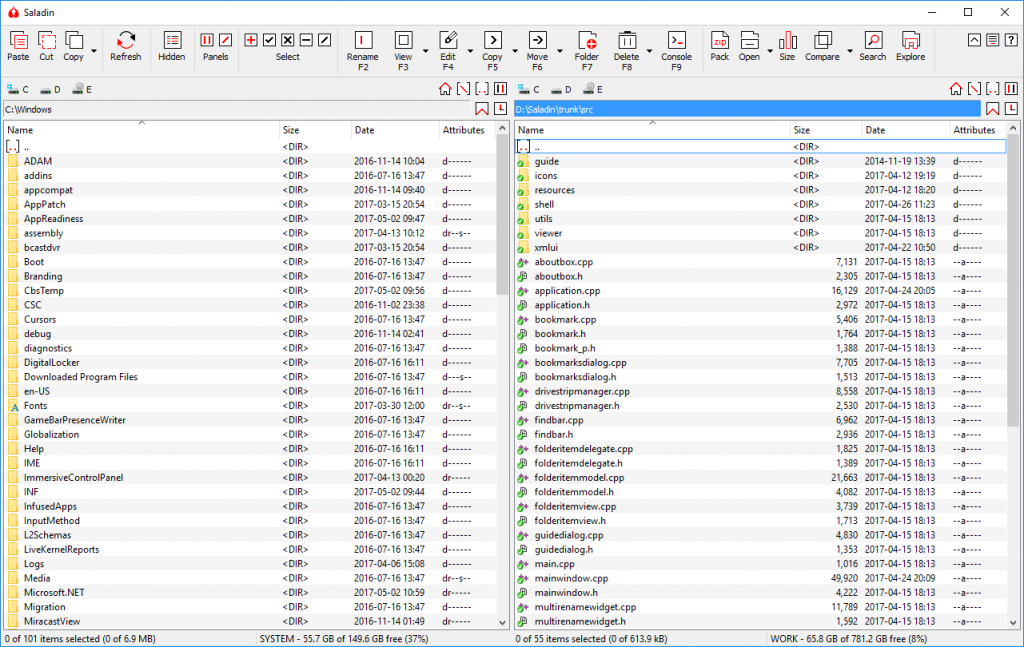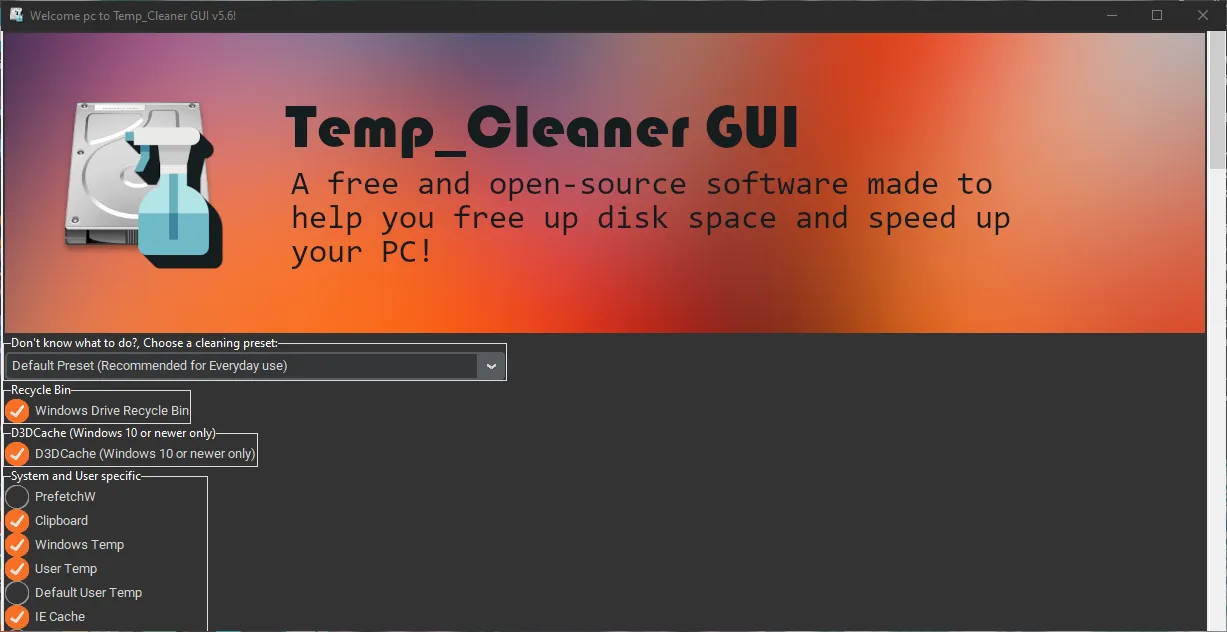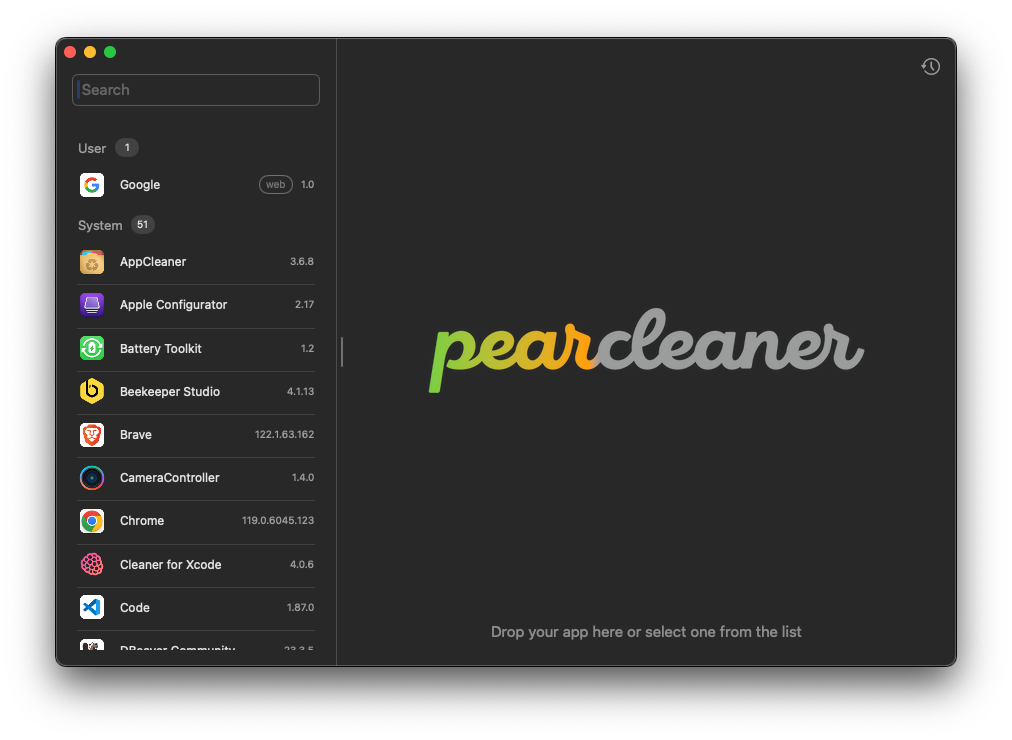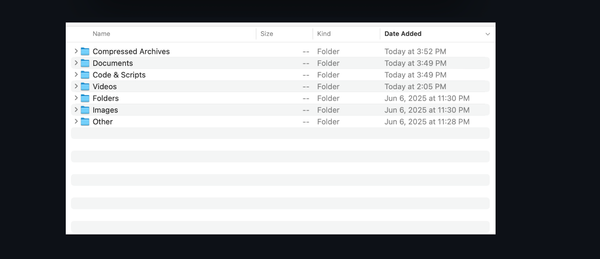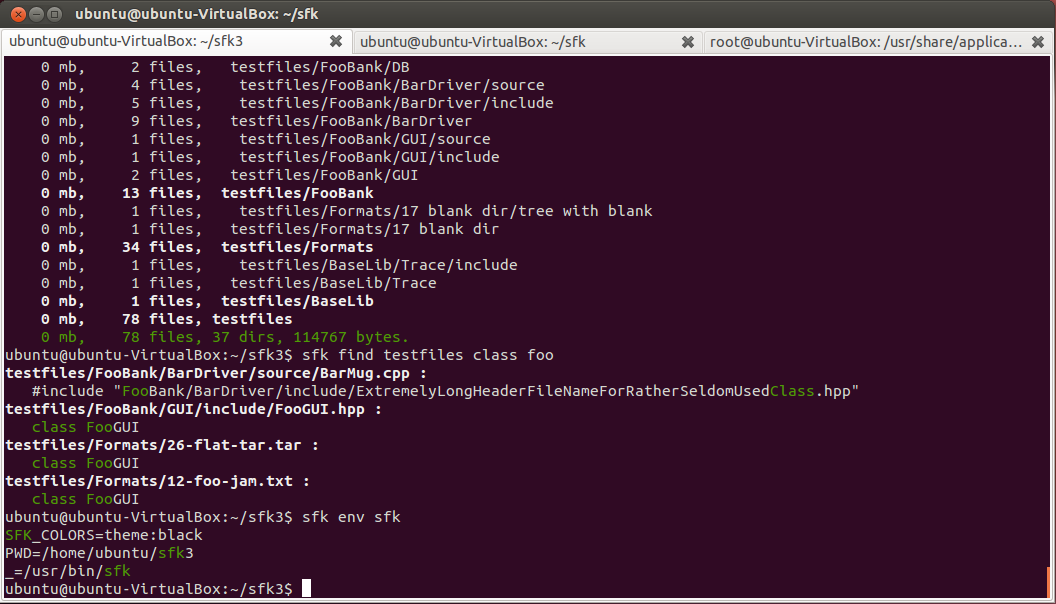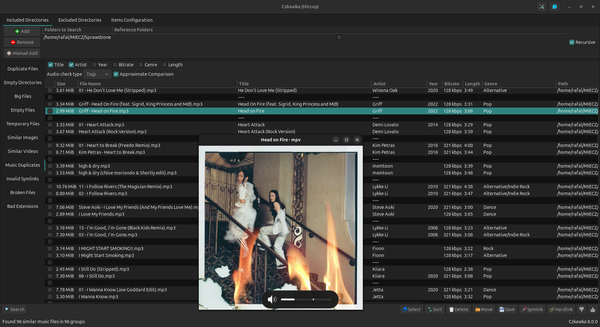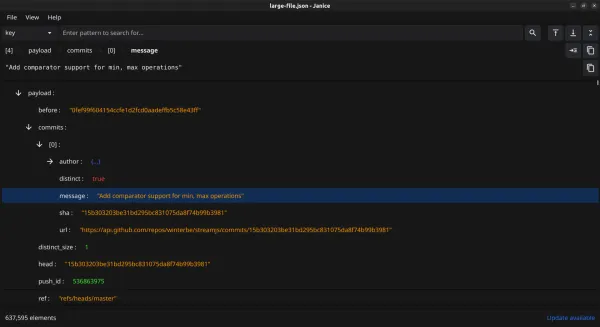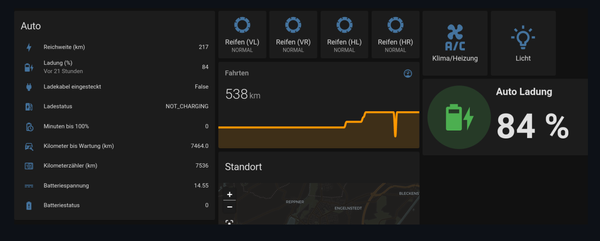Find Large Files on macOS, 13 Open-source Solutions
Table of Content
As a macOS user, I constantly struggle with running out of disk space. And more often than not, it’s not because I don’t manage my files — it’s because I forget to back up the large ones before they pile up.
We’re talking about downloaded videos, movies, old project exports, and yes, those massive development folders that silently eat up tens of gigabytes over time.
macOS does have a built-in feature (Optimize Storage) that helps surface large files, but it often misses the real culprits: hidden development clutter.
As a developer, I’ve seen it all:
- Xcode’s massive cache and derived data
- Abandoned Rust, React, and Node.js projects with
node_modulesfolders that weigh in at gigabytes - Orphaned Meteor.js projects (I once cleared over 20 GB from just one of these!)
- Old Docker images, simulator data, and build artifacts
These files don’t show up in the “Large Files” section, they hide in plain sight, buried in ~/Library, ~/.cache, or forgotten project directories.
That’s why I put together this list: the best open-source tools, apps, and scripts to help macOS users, especially developers, reclaim their disk space safely and efficiently.
Now, a quick heads-up:
Some of these tools require basic command-line knowledge or manual configuration. If you're not comfortable with scripts or system folders, take your time. Always back up important projects before running cleanup commands. When in doubt, read the docs.
Let’s dive in, and get your Mac breathing again.

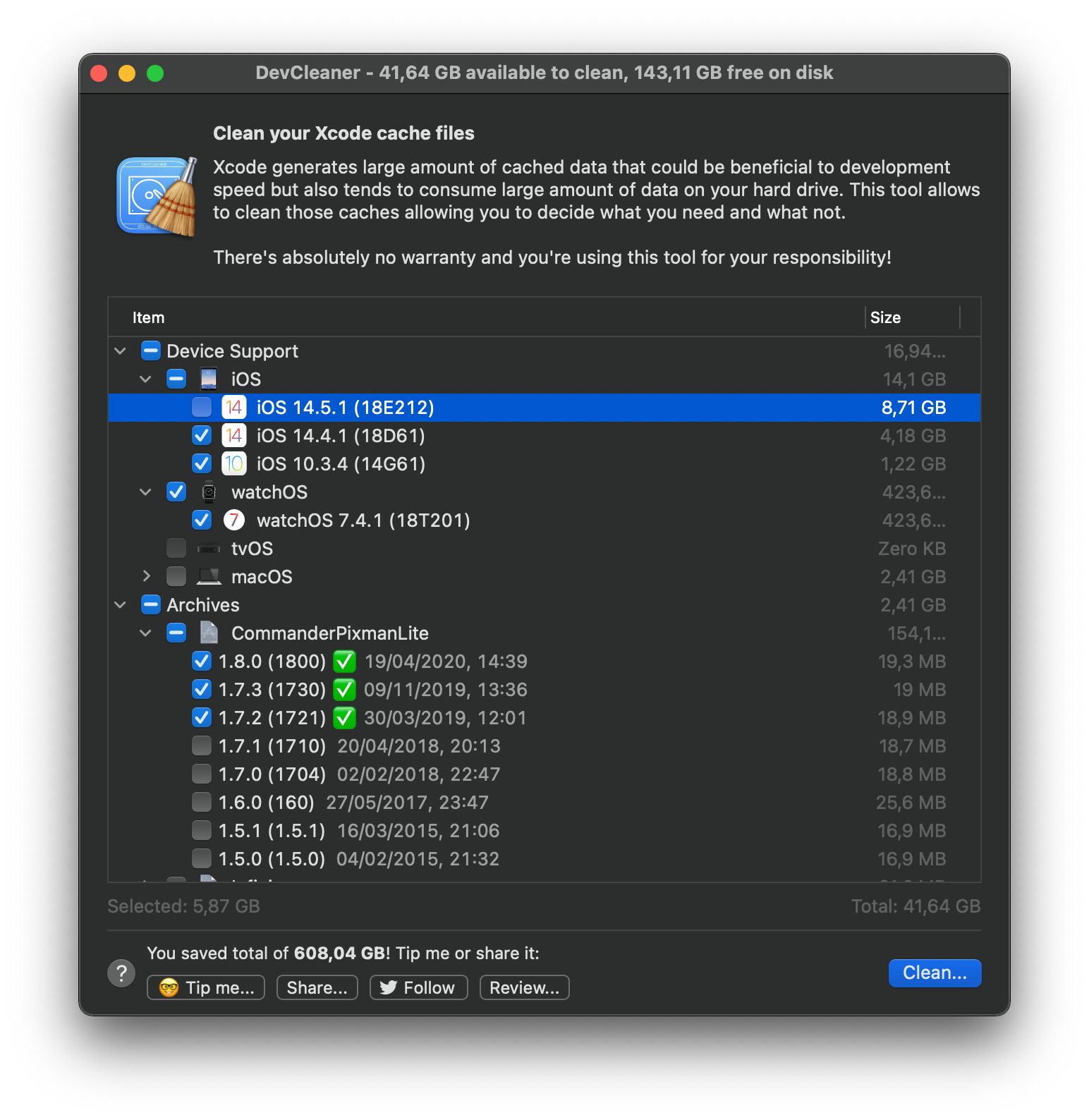
Find Large Files on macOS using Find
To find files larger than 100 MB with Terminal in Volume named Mojave type:
sudo find / -type f -size +100000k -exec ls -lh {} \; | awk '{ print $9 ": " $5 }’ > large_files.txt
1- Diskusage
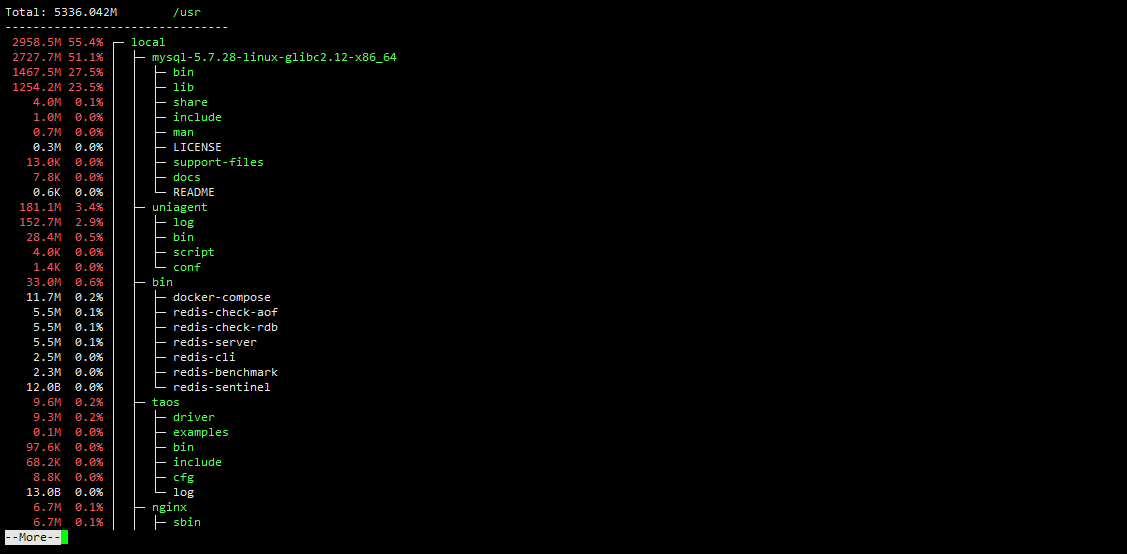
Diskusage is a fast and efficient tool for analyzing disk usage on Linux, macOS, and Windows. Designed to quickly identify the largest directories and files, it helps users pinpoint space hogs with ease.
The app is written in Go and released under the Apache-2.0 license, diskusage is a lightweight, cross-platform utility for effective disk space management.
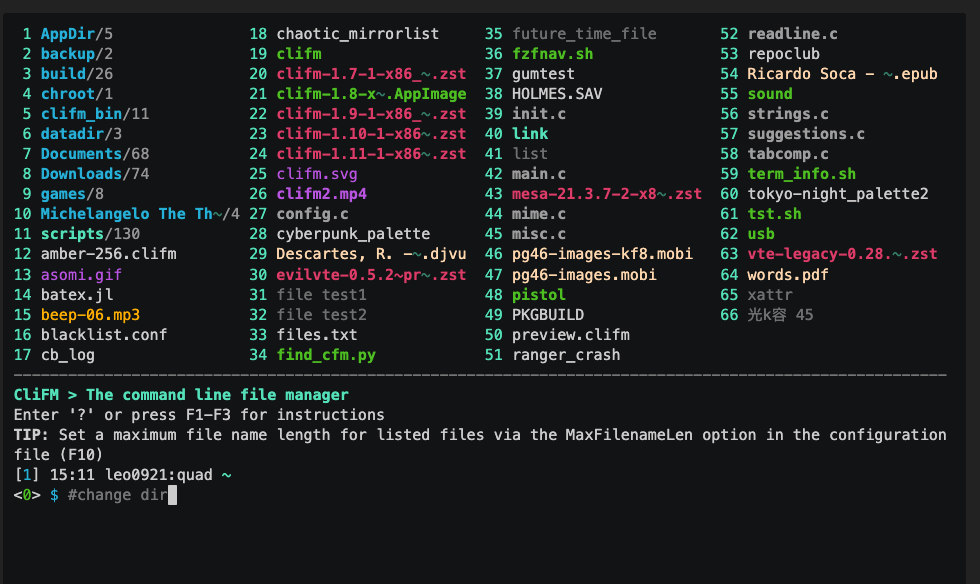
2- duf
The duf tool is a free and open-source Disk Usage/Free Utility (Linux, BSD, macOS & Windows).
duf's Features
- User-friendly, colorful output
- Adjusts to your terminal's theme & width
- Sort the results according to your needs
- Groups & filters devices
- Can conveniently output JSON
- Works seamlessly on Windows, Linux and macOS
brew install duf
# then
duf
#or
duf /home /some/file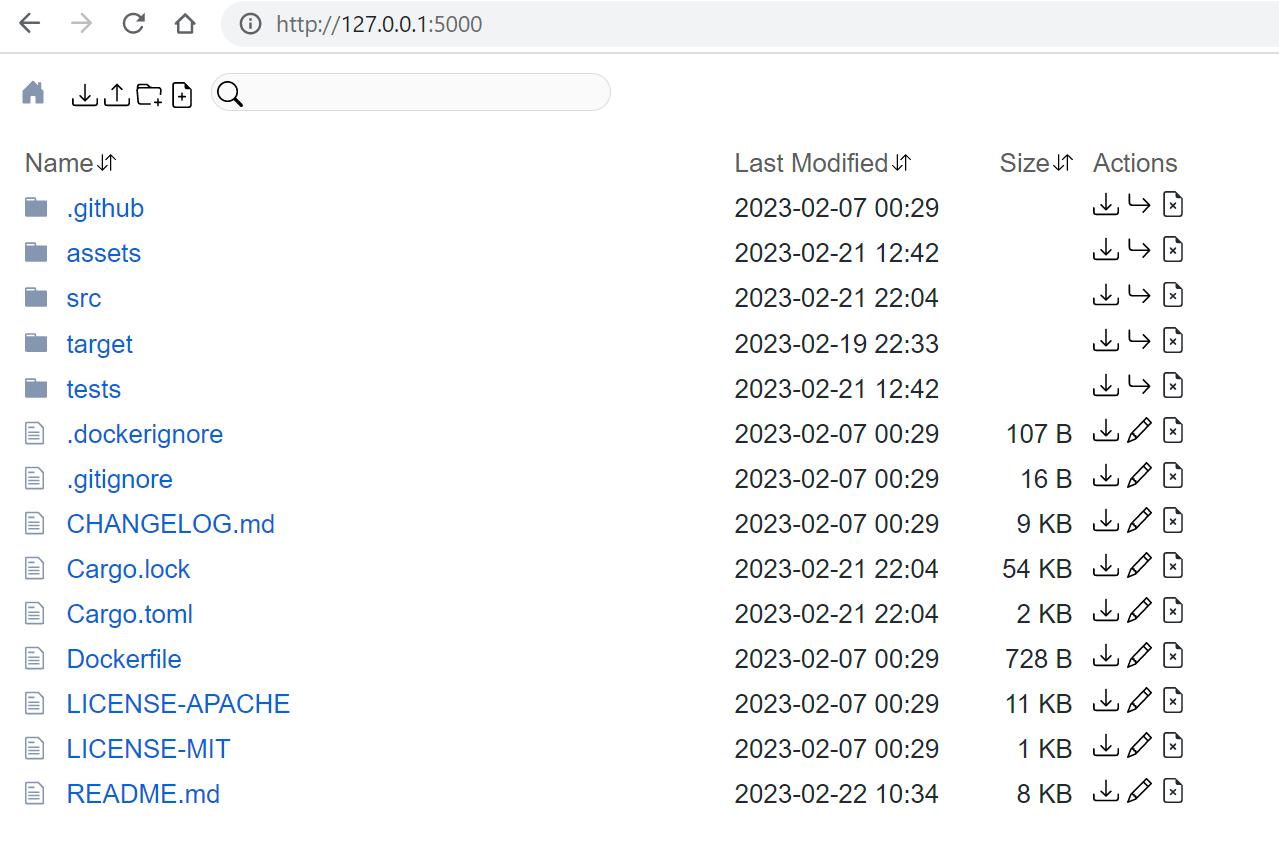
3- Gdu: go DiskUsage()
Gdu, a supercharged, reliable disk usage tool built for speed and precision, written in Go and designed to dominate your storage game on Windows, Linux, and macOS.
Whether you're rocking an SSD or spinning HDD, Gdu flies through your filesystem to instantly spotlight the biggest files and directories. It’s optimized for parallel processing, so on SSDs it’s absurdly fast, and on HDDs, still impressively quick.
No fluff. No slowdowns. Just raw, real-time insights into where your disk space really went.
4- reclaimed
reclaimed is a fast, lightweight, and intuitive disk space analyzer and cleanup tool designed for macOS, Linux, and Windows.
It helps users quickly visualize storage usage, identify space-hogging files and directories, and reclaim valuable disk space with ease.
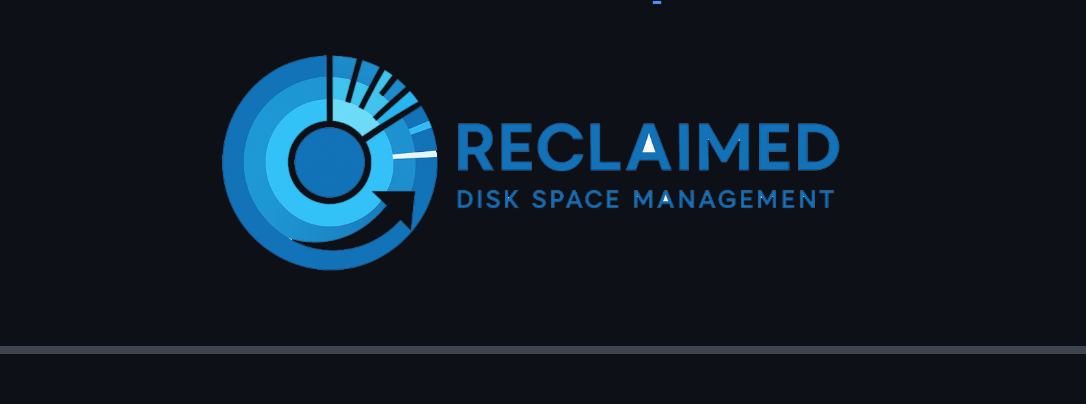
5- QDirStat
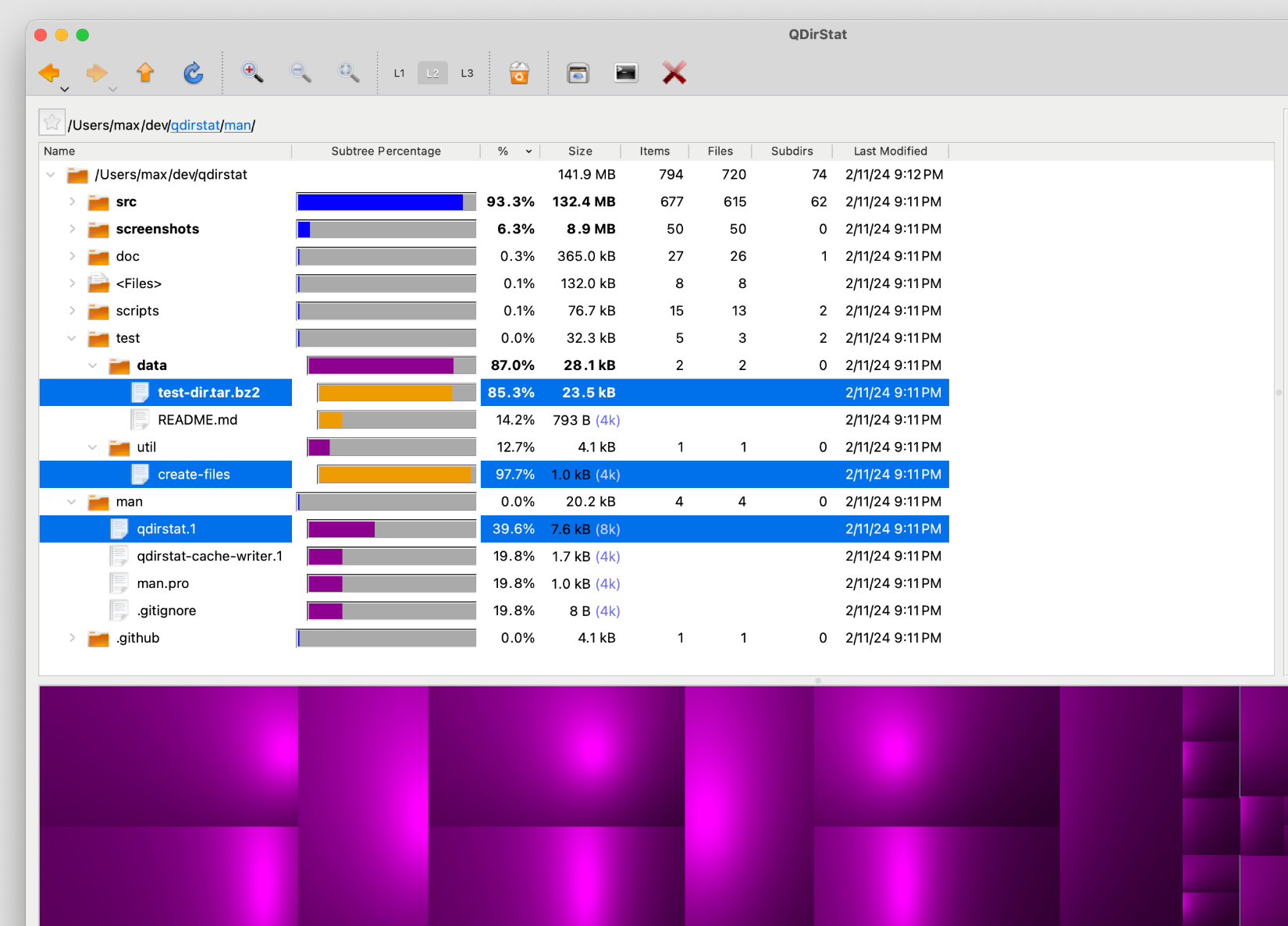
QDirStat is a fast, Qt-based disk usage analyzer that helps you visualize and reclaim wasted storage on macOS, Linux, and Windows, no KDE required.
See exactly where your disk space goes with an intuitive tree view and colorful Treemap, making it easy to identify and delete large, unnecessary files.
Built by the original creator of KDirStat, this lightweight tool is perfect for cleaning up your system quickly and efficiently.
6- searchfs
searchfs is a fast, command-line tool for macOS that searches filenames across APFS and HFS+ volumes by scanning the file system catalog at the driver level.
It’s significantly quicker than traditional methods like find and powers KatSearch, a native GUI app for intuitive file searching.
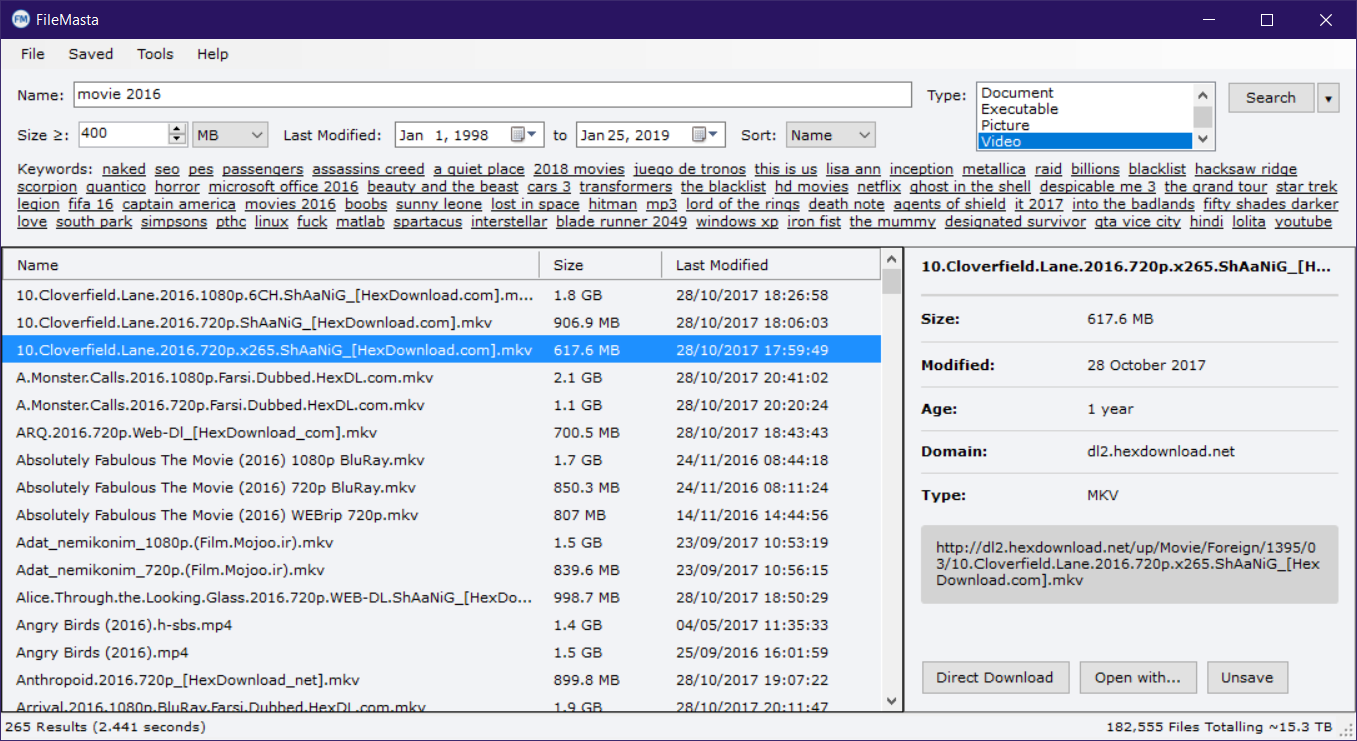
7- Dirscan
Dirscan is a high-performance tool designed to rapidly analyze massive disks, local or networked, providing a detailed summary for every directory, including file count, total size, and latest access or modification times.
Built for speed and efficiency, Dirscan outperforms traditional tools like du, find, and tree by orders of magnitude.
Its features include:
- Blazing-fast scanning that scales with your CPU and disk speed
- Support for customizable threading to maximize performance
- Streaming JSON or CSV output for low memory usage, even on huge volumes
- Real-time results written incrementally, enabling analysis without waiting for completion
- Built-in viewer and compatibility with external tools for easy data inspection
This simple app is an ideal option for large-scale storage audits, Dirscan delivers powerful insights without the slowdown.
The best thing is, it does not work only on macOS, but can be easily installed also for Linux, Windows as, a Rust binary, and as a Docker.
Install on macOS and Linux
brew tap orf/brew, then brew install dirscan
8- fd
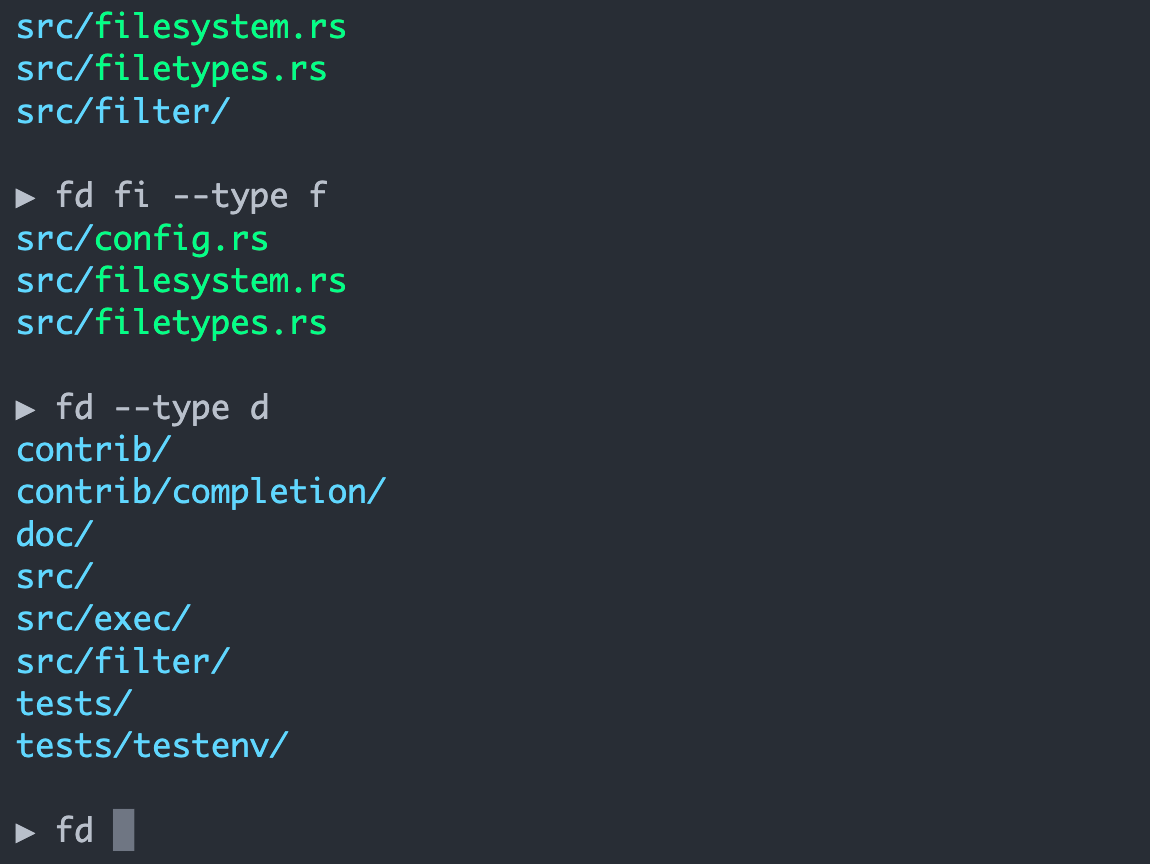
fd is a program to find entries in your filesystem. It is a simple, fast and user-friendly alternative to find. While it does not aim to support all of find's powerful functionality, it provides sensible (opinionated) defaults for a majority of use cases.
9- Duck
Duck is a very fast utility to find largest directories or files.
Duck included Features
- Quickly gathers sizes of directories and files
- Identifies the largest directories and files at a glance
- Extremely fast performance, even on large datasets
- Outputs data in JSON format for seamless integration with services
- Provides human-readable output for easy console use
- More accurate than FAR Manager in size calculations
10- Find Large Dirs
This is a free and open-source simple tool to scan directories, find the largest ones, and analyze disk usage with file type statistics. It is a cool option for storage optimization and backup monitoring.
11- Czkawka
Czkawka is a powerful, free, and open-source disk cleanup tool built in memory-safe Rust for maximum performance and security. It swiftly scans your system to find duplicates, empty folders, large files, broken symlinks, invalid files, and even visually similar images and videos.
It is available on Linux, Windows, macOS, and FreeBSD, it combines speed, accuracy, and privacy, no internet access, no ads, no tracking.
12- dua
dua (-> Disk Usage Analyzer) is a tool to conveniently learn about the usage of disk space of a given directory. It's parallel by default and will max out your SSD, providing relevant information as fast as possible.
Optionally delete superfluous data, and do so more quickly than rm.
Install for macOS, Linux and Windows
#macos
curl -LSfs https://raw.githubusercontent.com/Byron/dua-cli/master/ci/install.sh | \
sh -s -- --git Byron/dua-cli --crate dua --tag v2.29.0
#using Homebrow
brew update
brew install dua-cli
# Linux
curl -LSfs https://raw.githubusercontent.com/Byron/dua-cli/master/ci/install.sh | \
sh -s -- --git Byron/dua-cli --target x86_64-unknown-linux-musl --crate dua --tag v2.29.0
#windows
scoop install dua
You can also install and download the binaries as well.
13- tere - a faster alternative to cd + ls
tere is a terminal file explorer. It is a faster alternative to using cd and ls to browse folders in your terminal. tere only really does one thing: it provides a TUI for efficiently navigating to a folder, and then prints the path to that folder when you exit.
By configuring your shell to cd to the printed folder, you can move around in your filesystem very quickly.
Looking for more?
